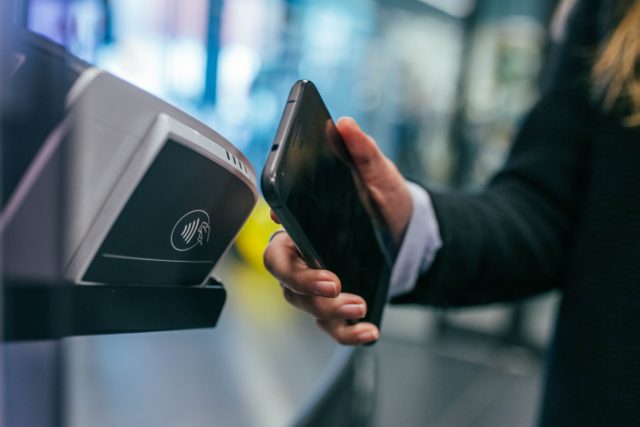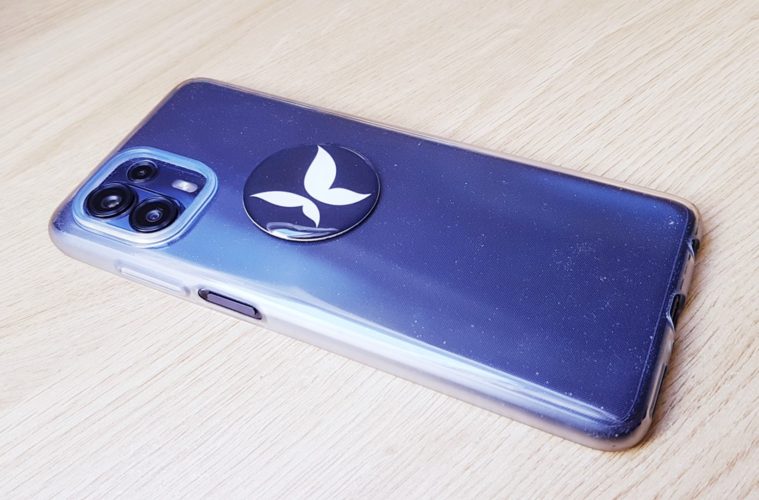If you’ve ever attended in-person networking events, you’d likely come out of them with a stack of business cards. So it then becomes a chore to sift through them all, only to transfer just over half onto your phone. The question becomes: how else can we efficiently start conversations and end with lasting first impressions? Cue Wing – a digital business card… And button start-up!?
Meet Wing’s CEO and Co-Founder
“Paper business cards are environmentally harmful, outdated and boring.”
Having reconnected at Seedery Summit 22 back in March, we interviewed Sina Sadrzadeh as part of our student start-up series. Today, we will take a peek inside his business and pass on several tips for budding entrepreneurs.
Sina and his team launched Wing last year to innovate in-person networking “by harnessing the same technology as Apple Pay to provide a fully customisable, contactless physical business card”. This magical protocol circumvents the inconvenient installation of separate applications, and is found in almost every smartphone: Near Field Communication.
If those nearby have NFC switched on, their screens will be automatically redirected to Wing’s website upon lightly tapping phone-to-phone. Sharing of contact information, from phone numbers to GitHub profiles, is therefore achieved in-browser.
NFC-enabled digital business card start-up boom
In the past three years, several start-ups leading this eco-friendly transition have popped up across the US and UK. Approaching their one-year anniversary, Wing must contend with the likes of Samsung, Popl, V1ce and Dot. All such companies have ditched middleware app stores towards NFC-enabled digital business cards and buttons that stick onto your phone case. It’s worth noting Wing’s products are comparatively cheaper.

Mobile payment using a payment terminal | Picture taken by Jonas Leupe | Unsplash
[ Disclaimer: Sina sent us a Wing Button (pictured on our article’s front cover) as an appreciative token, and we’ve tested and verified their sleek customisation UI discussed below. ]
Why don’t we start by having you tell me something about your personal life that shaped who you are today?
I used to play a lot of chess when I was growing up as a way to unwind. When I was around ten-years-old, I was one of the best in my county, top 1000.
Back in high-school, I was that kid making good money off selling sweets. And I made around £30 per day in the playground. I think it encourages entrepreneurship. But the school stepping in is kind of like halting the free market economy.
Peppercorn, my first business, was never really about money. It was an idea of reducing food waste, connecting businesses with surplus food to local charities. I got funding from O2 and University of Bristol.
You are currently enrolled in the PowerMBA UK programme. What key aspects of this online business course attracted you as an economics and management graduate?
They sponsored my Millennial Entrepreneur podcast before. So they found me, and offered me their course. Fifteen-minute lessons on leadership and digital marketing. I absolutely loved it!
Now that they’re massive, they recently increased the prices. Quite rightly so, as the value they give is immense. Eric Ries, who wrote The Lean Start-up. Eric Schmidt, ex-Google. Marc Randolph, who was CEO of Netflix. Their lectures have been really useful. It’s very geared towards practical advice in launching and maintaining your start-up.
How did you meet your team?
My co-founders had helped me with my previous business through the O2 program for Peppercorn.
We have: myself, two other co-founders, one software developer, one 3D renderer, one junior business development manager, and one intern. We have a very balanced team – we all work part-time right now though.
Could you lend us insights on fundraising?
We are a fully-bootstrapped company actually. We haven’t raised any external funding so far.
But generally, there are loads of grant opportunities. As I previously mentioned, I got money from O2. The university does competitions for student start-ups too. I got a lot of support from their careers service and mock pitching.
University is the best place to network. Join your entrepreneurship society, become the head of your entrepreneurship society, and meet some cool people. Leverage on that. Once you’ve graduated, it’s harder. Well, one of my co-founders didn’t even go to university. But definitely harder.
How does Wing plan to scale its operations?
We go after big corporates. The long-term plan will be through software, such as providing custom backgrounds. It will ultimately save them in the short-run and long-run. Also it’s better for the environment!
No-one even needs to know about us. You tap someone else’s phone, and your information pops up on their phone. So they can see your customisable profile that supports about 50 different social media platforms. You can customise with colours, logos, stuff like that. The cool thing is, if you change jobs or get promoted in your current job, instead of printing 200 new business cards, you can just edit your profile and it will immediately update. You can keep our digital business card and button forever.
Stats please!
The most up-to-date stats are 896 people and 2,800 taps over the last month. For every 400 taps, that is the equivalent of a tree saved on average. That’s the cool thing about having these analytics. It’s essentially replacing the paper business card usually given out – those are so boring!
We sell pretty much around the world. We have a big client in Spain, we sold individual units in Italy, we sold to a business in Israel. But Brexit has been annoying; our customers have to pay customs.
Quite a few sold in the US too, which was surprising given the competitive landscape there. Competition’s always good. Competition means the market is definitely there. Otherwise it means we have to do something radical for that product-market fit.
This is a long shot away, but have you thought about exit strategies if Wing hits unicorn status?
Definitely not right now! Once we get some revenue, why not? We’re a small team. I’ll be happy with Wing being a side-business, revenue every month. We work with software to eradicate paper business cards completely and help sales people with analytics.
Covid really changed the game when it comes to in-person networking. The behaviour and expectations have changed, and people are more welcoming of technology in this space.
What are some must-do starting tips for start-ups?
Build a landing page – even if you don’t have a product yet. You should build a low-cost MVP and get some traction in some way. Get some numbers, so once you go to an investor, you show them big clients in the pipeline, this is how many units they want. All you’ll need then is money to actually build this software. For an investor, it’s a lot less risk, all these numbers backing you.
I read your Medium post regarding technology borrowing to launch your start-up. To what extent are technical skillsets and backgrounds vital as CEO?
I’m a big advocate of leveraging other people’s technology. If you really wanna stretch it, the whole PowerMBA is built on Typeform.
We had the NFC chip already. At the start, I used Linktree, basically a competitor, and other third-party software like Google Forms. This was before launching our digital business card.
You can also work with other people who are more knowledgeable. It definitely does help, but you don’t need to. It’s about taking this product or service to more people.
Same with healthtech. You can work with doctors, nurses and healthcare professionals. Give them the tools to make them more accessible to more people.




